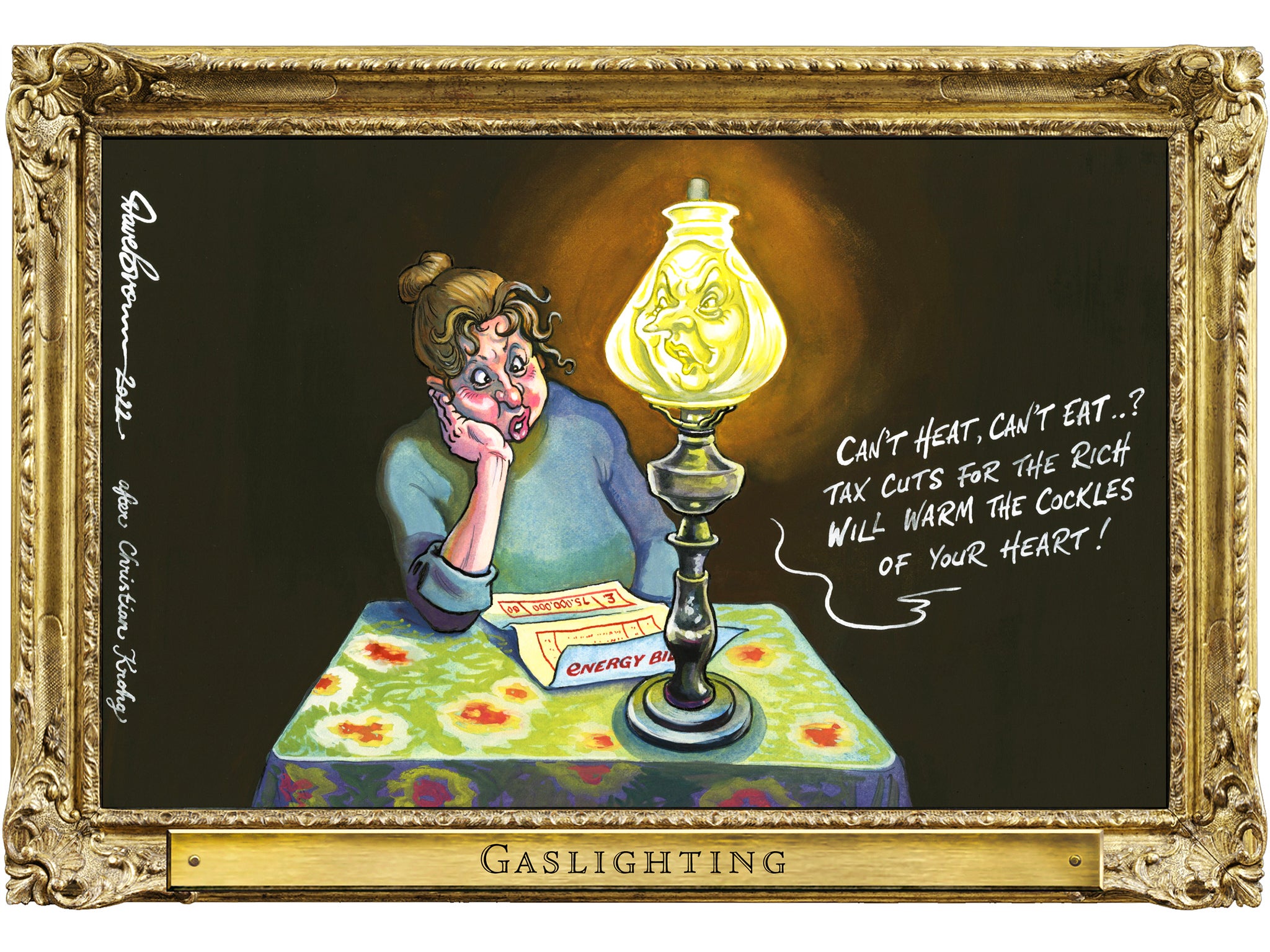Frightened as so many households are by the forthcoming 80 per cent rise in domestic energy bills, the true extent of the approaching crisis may still not have hit home. It is, after all, still summer, and in most of the UK the weather remains clement. The evenings are also relatively light. And the new price cap of £3,549, though much anticipated, has only just been confirmed.
The bad news: it is clear that spiralling bills will keep pummelling households for many months into the future. One of the most distressing aspects of this emergency is the probability that prices will almost double again by next spring, reaching £5,000 to £8,000 per year for the average household by April. It is a volatile scene.
Of course, these figures, fearsome as they are, are only nominal “average” estimates. In reality, large families, those in larger and poorly insulated dwellings, and some disabled people with special needs and equipment will face far higher bills.
As Martin Lewis, personal finance expert and provisional conscience of the nation, points out: some families may well be faced with a £10,000 a year bill, treble what it was a few months ago. In many cases, it will exceed a household’s mortgage bill.
Arguably still worse, there may be power cuts come winter, as demand increases and the supply runs short. In the meantime, there is only so much that can be achieved by turning the thermostat down, putting a jumper on and turning the lights out. The interim chancellor, Nadhim Zahawi, tells us: “The reality is that we should all look at our energy consumption.”
The reality of Mr Zahawi’s own energy bills is that he once claimed thousands (which he claims was an honest mistake) on parliamentary expenses to keep his horses warm. It ill behoves him to patronise hard-working families about saving energy. More to the point, he has nothing to offer consumers except a vague assurance that the government knows it must “do more”. Try paying the gas bill with that rubbery promise.
Remarkably, no government minister was available for the morning media round, at a moment when families face the worst squeeze on their living standards in decades. The negligence is unforgivable.
By contrast, the (slightly) better news is that even if the government and the two Conservative leadership contenders haven’t yet been able to produce a plan to save people from fuel poverty – and no doubt, in extremis, hypothermia – there is plenty of encouraging work being done away from Downing Street.
The Liberal Democrats and Labour have proposed a freeze of the energy price cap at the old rate of £1,971 for an average house until next April, funded by an extended windfall tax on energy producers. Their plan is simple and reassuring, with at least some attempt to set out how it would be funded; not for the first time in recent years, the opposition parties have responded to the public’s concerns more rapidly than the Treasury, with all the resources at its disposal. Rightly, too, the opposition wants to see special help for those on punitive prepayment meters.
Much the same can be said for the ideas coming out of Citizens Advice, the Resolution Foundation, and even the energy industry itself. Suggestions include schemes to smooth the cost over many years, the introduction of “social tariffs” for the poor, and hardship funds that will recoup the costs through progressive taxation. These organisations are focused on providing some certainty in the coming months, and attempting to dispel anxiety. From the government? Near silence.
There is an air of decay about Britain’s governing party, almost as if it has given up. Fresh out of ideas, short of talent, and prone to empty sloganeering, it is about to elect its weakest leader since the hapless Iain Duncan Smith succumbed to the Peter principle two decades ago (and he may now be making an unlikely comeback).
To keep up to speed with all the latest opinions and comment sign up to our free weekly Voices Dispatches newsletter by clicking here
Because of the manner in which Boris Johnson wilfully forfeited the confidence of the party, combined with his insistence on carrying on in office (seemingly to go on holiday and party) and the convoluted method of selecting a new leader, the Conservatives left the field of play some weeks ago.
They have been talking to themselves, and the noises that have been emanating from the hustings have been ominous. Ms Truss’s pledge of no “handouts” and her haughty rejection of what she calls “Gordon Brown economics” suggests that she doesn’t “get” the scale of the energy crisis – or the other urgent challenges facing the country.
She prefers to crack bad jokes to a captive audience of wealthy individuals with few debts, who are well able to cope with high energy prices – a tiny, unrepresentative cadre dreaming of a better yesterday.
It is the worst possible way to select the worst possible candidate for prime minister at the worst possible moment. The Conservatives are not the only ones who will live to regret it.







Join our commenting forum
Join thought-provoking conversations, follow other Independent readers and see their replies
Comments